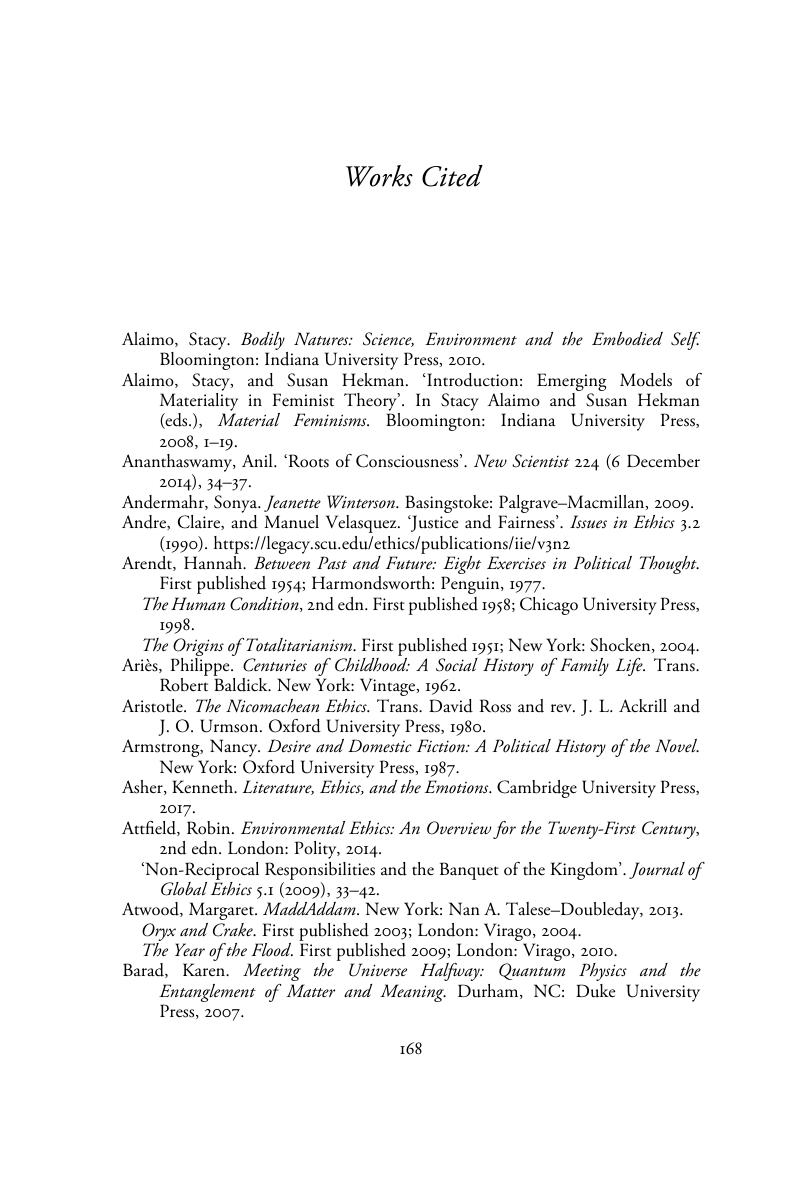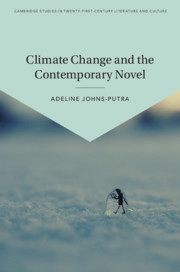Book contents
- Climate Change and the Contemporary Novel
- Cambridge Studies in Twenty-First-Century Literature and Culture
- Climate Change and the Contemporary Novel
- Copyright page
- Dedication
- Contents
- Figures
- Acknowledgements
- Introduction
- Chapter 1 The Ethics of Posterity and the Climate Change Novel
- Chapter 2 The Limits of Parental Care Ethics: Cormac McCarthy’s The Road and Maggie Gee’s The Ice People
- Chapter 3 Overpopulation and Motherhood Environmentalism: Edan Lepucki’s California and Liz Jensen’s The Rapture
- Chapter 4 Identity, Ethical Agency, and Radical Posterity: Jeanette Winterson’s The Stone Gods and Sarah Hall’s The Carhullan Army
- Chapter 5 Science, Utopianism, and Ecocentric Posterity: Kim Stanley Robinson’s ‘Science in the Capital’ and Barbara Kingsolver’s Flight Behaviour
- Conclusion The Sense of No Ending
- Works Cited
- Index
- References
Works Cited
Published online by Cambridge University Press: 01 March 2019
- Climate Change and the Contemporary Novel
- Cambridge Studies in Twenty-First-Century Literature and Culture
- Climate Change and the Contemporary Novel
- Copyright page
- Dedication
- Contents
- Figures
- Acknowledgements
- Introduction
- Chapter 1 The Ethics of Posterity and the Climate Change Novel
- Chapter 2 The Limits of Parental Care Ethics: Cormac McCarthy’s The Road and Maggie Gee’s The Ice People
- Chapter 3 Overpopulation and Motherhood Environmentalism: Edan Lepucki’s California and Liz Jensen’s The Rapture
- Chapter 4 Identity, Ethical Agency, and Radical Posterity: Jeanette Winterson’s The Stone Gods and Sarah Hall’s The Carhullan Army
- Chapter 5 Science, Utopianism, and Ecocentric Posterity: Kim Stanley Robinson’s ‘Science in the Capital’ and Barbara Kingsolver’s Flight Behaviour
- Conclusion The Sense of No Ending
- Works Cited
- Index
- References
Summary

- Type
- Chapter
- Information
- Climate Change and the Contemporary Novel , pp. 168 - 179Publisher: Cambridge University PressPrint publication year: 2019



